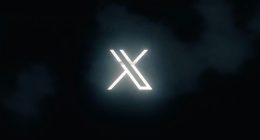With us spending most of our time on the interwebs, we’ve definitely come across that annoying CAPTCHA textbox which instructs us to prove our humanity by deciphering some muddled text (or pictures). The said technology has been rapidly evolving to help websites differentiate between humans and spammy bots, without being a burden on us. Thus, falling in line with previous reports, Google has finally made its security AI so powerful that reCAPTCHA doesn’t require any interaction from you. It is going invisible.
When you visit some web platform or any website to sign-up or submit a form, chances are you’re faced with the CAPTCHA identity verification system. The system, currently in use, requires you to simply tick a checkbox next to the text reading “I’m not a robot” to prove you’re human. Called No CAPTCHA reCAPTCHA, this identity verification system debuted about two years ago. But, Google is now looking to better the user experience with the debut of the Invisible reCAPTCHA.
The new system has been designed to enable websites to provide a seamless and intuitive user experience, without annoying users by asking them to solve puzzles to prove they’re human. The invisible system is armed with the same security measures, but will now be put to work in the background. It would automatically differentiate between a human and a bot, cutting access to the website for the latter.
The infamous CAPTCHA (Completely Automated Public Turing test to tell Computers and Humans Apart, an abbreviation true to its name) technology is owned by Google. It acquired the same from researchers at Carnegie Mellon Univerity in 2009 and put it to work on websites across the web.
But, differentiating between humans and robots is not the only task that Google accomplished with the use of reCAPTCHA. It actually used your help to identify the words and numbers its OCR (optical character recognition) software couldn’t recognize while digitizing the data. This means the jumbled text or photos of number plates that were served to you via the CAPTCHA were scans of books and house numbers scanned by Google View cameras.
Though Google is introducing an invisible reCAPTCHA, but it is not completely doing away with older verification methods. The sites across the internet will soon switch over to detect your true self in the background. However, if a suspicious activity is detected, then the usual CAPTCHA challenges would surface and ask you to identify yourself.






1 comment